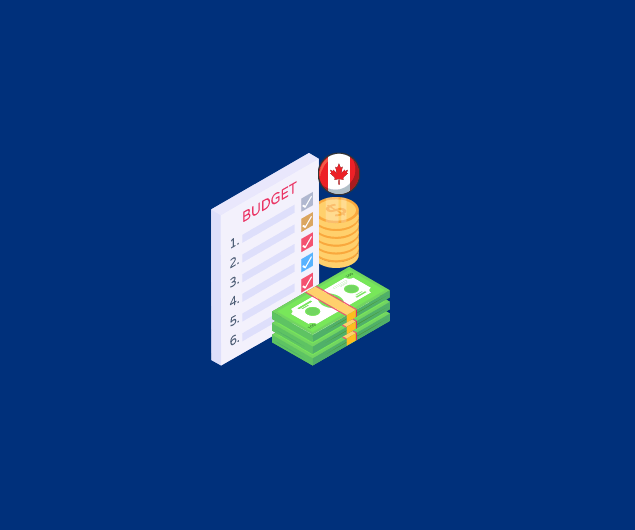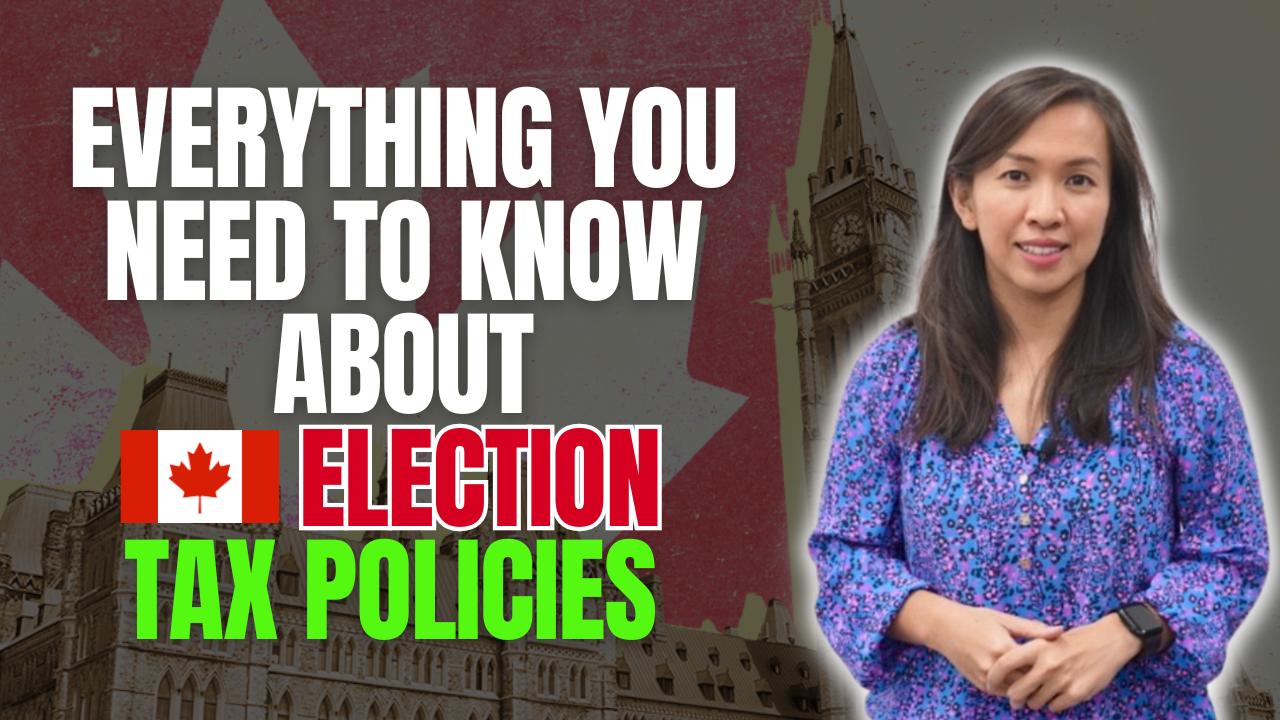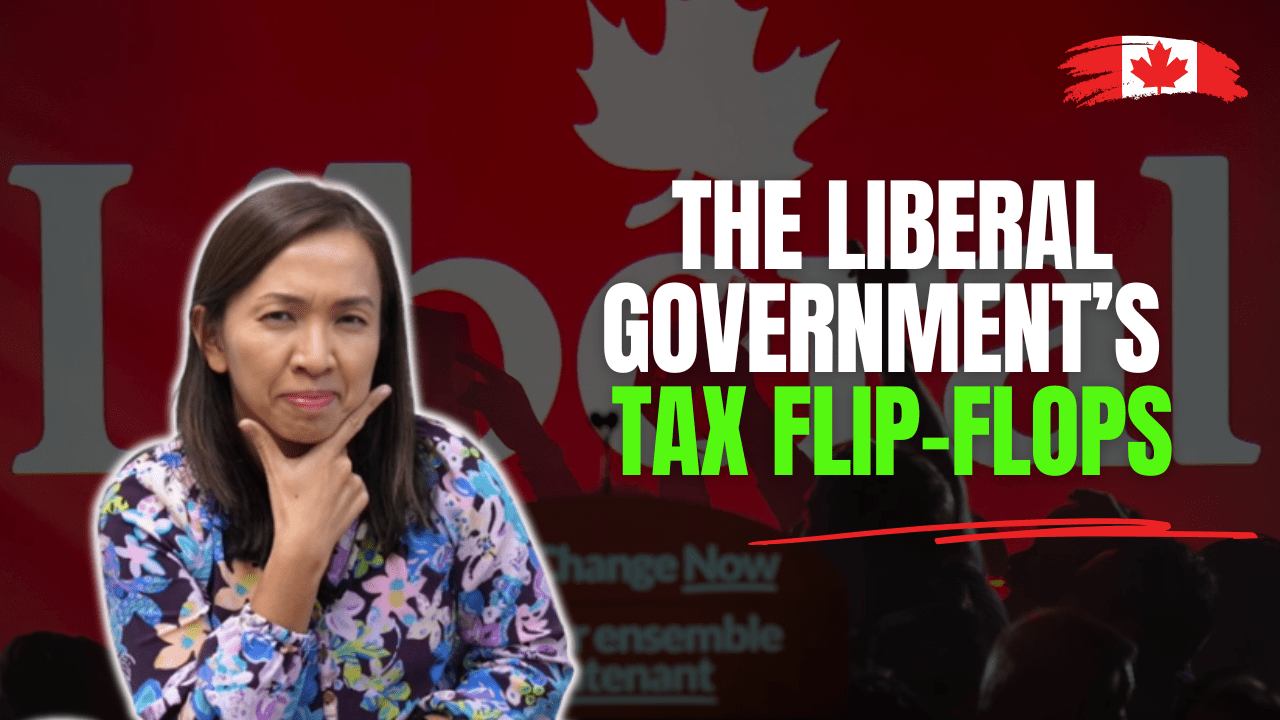On April 7 2022, the Canadian federal government set their Budget 2022 . We’ve all been waiting for the government to do something about the out of control housing market.
If you don’t know already, almost the entire budget is about addressing this crazy housing market and affordability issue. Whether you’re a real estate investor, a small business owner, first time homebuyer or cryptocurrency trader, there is something in this Budget 2022 that’s for you.
In the past, there’s been a lot of speculation that the government would increase the capital gains inclusion rate from 50% to 75%. There was also discussion before the Budget that they would increase the downpayment requirements for investment properties from 20% to 35%.
Did that happen? Let’s dive deep into what they discussed and the key points that you cannot afford to miss from our Budget 2022.
You can watch my video on this here
8 Budget Items from Budget 2022
Whether you are a real estate investor, small business owner, first time home buyer or a cryptocurrency trader, these are useful and relevant to you.
1. Increasing housing supply for Canadians
Foreign investment ban for 2 years
How does the government increase Canadian housing? The government does the biggest thing that they can do – set a ban on foreign investment in Canadian housing. Yes, they are going to impose a ban on foreign investment on residential properties within the next two years. This means that foreign investors from outside of Canada would not be able to purchase any residential properties in the next two years. But there are exceptions to this ban.
According to the Budget 2022 these are the exceptions:
- Canadian citizens that are living overseas
- Permanent residents who want to purchase residential property and non-recreational property in Canada for a period of two years
- International students on the path to permanent residency, exempt in certain circumstances
- Individuals on work permits who are residing in Canada
- Refugees and people who have been authorised to come to Canada under emergency travel while fleeing international cities
So even though they are imposing a ban on all foreign purchasers, there are a bunch of exceptions that enable foreign investors to purchase local properties and compete with local Canadians in purchasing their investment properties or even first homes.
The New Housing Accelerator Fund
One of the ways that the Canadian government is trying to address the housing crisis issue is by providing a lot of money to the Canada Mortgage and Housing Corporation ($4 billion over five years, starting in 2022-23) to set up a “New Housing Accelerator Fund”.
They target to build 100,000 net new housing units over the next five years.
Rapidly Building New Affordable Housing
In hopes of rapidly building new affordable housing, the government also proposed to provide $1.5 billion over the next two years to CMHC to extend the Rapid Housing Initiative. The funding aims to construct 6000 new affordable housing units of which at least 25% funding will be going to the woman-focused housing projects, according to Budget 2022.
Home Buyers’ Bill of Rights
Now another thing that the government did is to make sure that the homebuyers right is protected. If you are a homebuyer, you’ve experienced going into bidding wars or a seller asking you to waive your right to a home inspection, making the process of buying a home even more stressful.
Even as a real estate investor, a lot of the time you’re forced to participate in blind bidding, especially here in Ontario.
And so, the Canadian government is trying to address these problems. As stated in the budget 2022, “to help level the playing field for all Canadians (including the young and middle class), the government will take steps to make the process of buying a home more open, transparent, and fair.”
Budget 2022 proposes to implement this by engaging with provinces and territories over the next year to develop and implement a Home Buyers’ Bill of Rights and bring forward a national plan to end blind bidding.
The federal government’s “Home Buyer’s Bill of Rights” could also include a legal right to buyers for a home inspection and ensuring transparency on the history of sales prices on title searches.
2. Helping first time home buyers
Tax Free First Home Saving Account
The Budget 2022 proposes to introduce a “Tax Free First Home Saving Account”. A Tax Free First Home Saving Account is kind of like an RRSP and TFSA hybrid account.
It aims to give first time homebuyers the ability to save up to $40,000 in contributions as stated in the Budget.
The way I see it, just like a RRSP contribution it will be tax deductible against your salary. But the withdrawals to purchase a first home, including the investment income that you earned in the savings account would not be taxable at all, just like a TFSA. Therefore, I’c calling it an RRSP and TFSA hybrid!
Tax Free in tax free out!
The government intends to work with financial institutions to make sure that this will be available for contributions starting in 2023. And this hopefully is going to help provide $725 million support over the next five years.
Doubling the First-Time Home Buyers’ Tax Credit
Currently, if you’re purchasing your very first home, you are eligible to claim about $5,000 on your personal income tax return as a tax credit.
The tax rate on the tax credit is about 15%. So, you save about $750, when you purchase your first home in terms of tax dollars, and it is a non refundable tax credit.
Now the government in Budget 2022 is proposing to increase that $5,000 tax credit to $10,000. Therefore, doubling it. This is applicable to any purchase that happened after January 1 2022.
So instead of getting $750 back from the government – assuming that you pay tax and have enough to cover that because this is a non refundable tax credit – you are now going to get the double of $750 ($1,500) in direct support to homebuyers.
An Extended and More Flexible First-Time Home Buyer Incentive
The First-time Home Buyer Incentive is an incentive provided by the federal government with the help of CMHC, which allows eligible first time homebuyers to lower their borrowing costs by sharing the cost of buying a home with the government.
To help more Canadians in buying their first home, Budget 2022 announced that there is an extension to march 31 2025 to this first time homebuyer incentive.
You essentially share equity with the government and can borrow up to 5% or 10% of the housing price from CMHC insurance, provided that you qualify. You can watch my video on this here.
Supporting Rent-to-Own Projects
As real estate investors we talk about rent to own strategy all the time. The government is finally recognizing the benefit of having a rent-to-own strategy to enable Canadians to set foot into the housing market. Rent-to-own strategy can help alleviate financial barriers by providing more time and support to Canadian renters seeking homeownership, by allowing them to live and grow in their own homes.
Budget 2022 proposes dedicating about $200 million in the existing Affordable Housing Innovation Fund. This will include $100 million to support nonprofits, co-ops, developers, and rent-to-own companies building new rent-to-own units.
3. Targeting real estate investors who game the system
Making Property Flippers Pay
The government is targeting tax property flippers that own properties for less than 12 months. Property flippers essentially buy a property and then sell it within the 12 months, and they are making a profit. All of it is income and 100% taxable.
To be fair, when you flip the property, your intention is to make a quick profit, and there is no intention of collecting a rental income. Therefore, when you flip a property, current tax rules require that the profit that you make to be reported as income and 100% of the profit that you make is taxable. It’s not on the capital gains account.
The government simply imposes
Around January 1, 2023, the government intends to make property flippers pay tax on the full profit as decided in Budget 2022.
You can read more about property flipping tax implications here. This video can also give you a quick recap.
4. Taxing Assignment Sales
Currently, when you make a new home assignment sale, GST/HST may or may not apply, depending on the reason for purchasing the home.
Essentially, when you are purchasing a pre construction home in Canada, you can sell off the pre construction home before closing, so you never really own the property. It is really a paper trail, and you are making a spread on the assignment sale.
We have talked about the HST exposure that could apply to assignment sales in the past. I spoke about court cases in which HST was being applied to assignment sale deals.
In a typical pre construction condo purchase, you are required to put down the deposit. And the court cases in the past have at times ruled that HST should not be applicable on the initial deposit that the seller made to the builder as the buyer reimburses the deposit to the seller.
Even though CRA had previously taken a strong stance on charging HST on the deposit, Budget 2022 recognized that deposits made to the builder on pre-constructions homes are subject to HST already. It clarified the government position that NO HST should be imposed on the deposit. Furthermore, CRA mandated that HST is charged on assignment fees, regardless of the sellers’ intention.
5. Tax credit you might be able to use
Multigenerational Home Renovation Tax Credit
The government is recognizing that some families are living with the older generation or the younger generation. So, the government is providing an incentive for homeowners who are renovating their basement turning it into a secondary suite for the purpose of a senior or an adult child or with a disability.
To support these families, Budget 2022 proposed to introduce a Multigenerational Home Renovation Tax Credit, giving away $7,500 in support for constructing a secondary suite for a senior or an adult with a disability.
Starting in 2023, this refundable credit would allow families to claim 15 percent of up to $50,000 in eligible renovation and construction costs incurred in order to construct a secondary suite.
Doubling the Home Accessibility Tax Credit
This is available for seniors and people with disabilities; an opportunity to live and age at home. If you are doing renovations just to accommodate changes in your or a loved one’s life, Budget 2022 is doubling the qualifying expense limit of the Home Accessibility tax credit to $20,000 for 2022 and subsequent tax year.
I have mentioned some eligible expenses in my video in the beginning of this post. You can claim essentially up to $3,000. The actual amount is really based on the amount of expenses that you spend.
6. The Implementation of Beneficial Ownership Registry (more reporting requirements)
A lot of real estate investors, including residential real estate investors and commercial real estate investors, use the corporation to own their rental properties. Sometimes real estate investors use this corporation as a flow through to own the properties in trust for someone else. The government aims to seek the true owners of the properties,
Therefore the government is accelerating its commitment to amend the Canada Business Corporations Act to implement a public and searchable beneficial ownership registry, which will now be accessible before the end of 2023.
The registry will cover corporations governed under the Canada Business Corporation Act, and will be scalable to allow access to the beneficial owner data held by provinces and territories that agree to participate in this national registry.
What it means is that they want to increase transparency in terms of who truly owns these properties, and if these properties are owned by foreigners, they want to stop it altogether. Therefore, limiting the access to the Canadian housing market for foreign owners.
7. Crypto currency: Monitoring & Addressing Digitilization of Money
Simply saying, the government will be monitoring the digitization of money : Cryptocurrency. In budget 2002, they specifically addressed incidents that had recently occurred in Canada, and also around the world, where digital currency was used to fund illegal activities and as a way to avoid global sanctions. Naturally, the government doesn’t like it.
So Budget 2022 is proposing to give away about $17.7 million over the next five years starting in 2022, to allow the Department of Finance to lead a review and look into adapting the financial sector regulatory framework and toolbox to manage digital currency trading and risks (how you transfer from one place to another). As well as, the ways to maintain the security and stability of the financial systems.
Simply saying, they’re looking into establishing some rules and regulations into controlling the transfer of digital currency. And they’re also going to use the funds to look into the potential need of having a central bank digital currency in Canada as well.
This could be quite scary because the whole point of having the cryptocurrency platform or a stable coin platform is to allow the centralization and now the government is spending money to make sure that they get control back in their hands to control the currency and control the assets.
8. Other tax changes you might find useful
Cutting Taxes for Canada’s Growing Small Businesses
The government is proposing to cut tax for small businesses that are trying to grow. Specifically for small business Canadian controlled private corporations, if they earn active business income for the first $500,000.
For the first $500,000 net taxable income, they get to enjoy as little as 12.2% small business tax rate. But this $500,000 gradually grinds down if their taxable capital employed in Canada reaches over $10 million. Then, the $500,000 Small Business deduction is completely wiped out.
If the taxable capital employed in Canada is over 15 million, the government is now proposing to expand that 15 million to 50 million. So there is more small business tax deduction available to be taxed at a low rate of 12.2% in Ontario based on the current 2022 Budget.
Preventing the Use of Foreign Corporations to Avoid Canadian Tax
They’re essentially trying to stop tax strategies that allow foreign ownership and corporations to turn a Canadian controlled private corporation to a non Canadian controlled private corporation, and therefore, be taxed differently in a more tax advantageous way. So, they are going to put measures into our Income Tax Act to stop this practice.
Phasing Out Flow-Through Shares for Oil, Gas, and Coal Activities
A few of our high net worth clients bought flow through shares for oil, gas and coal mining to take advantage of the tax incentives available. However, the government in Budget 2022 is proposing to eliminate the flow through shares regime for fossil fuel sector activities.
This will be done by not allowing any expenditure related to oil, gas and coal exploration and development to be renounced to flow through share investors.
So, for those of you who are investing in flow through shares investments to get the tax deduction, you might have to come up with plans to get rid of these flow through shares quickly.
Now that we’ve gone through the 8 significant items in the 2022 federal budget, we can see that…
There is no increase in the capital gain inclusion rate from 50% to 75%.
There is also no increase in down payment requirements to purchase investment properties.
And, the government is also not banning the use of home equity line of credit to fund the purchase of investment properties.
What Budget 2022 mainly did was ban foreign investors from purchasing local residential properties and non recreational properties for two years.
Now, do you think that Budget 2022 did enough to cool down the housing market? Leave me a comment and let me know!
Hope you found this deep dive into Budget 2022 insightful!
Until next time, Happy Canadian Real Estate Investing.
Cherry Chan, CPA, CA
Your Real Estate Accountant






Ellen Forte
Valuable information. well written. Thank you !
Cherry
Thanks Ellen! Glad you found it useful 🙂
Cherry
Hi Ellen, thanks for being here. Unfortunately this isn’t the right platform where I would be able to advise you about your personalized situation without knowing the specifics. For any questions or consultation, please contact our office at 416-548-4228 or email us at admin@cccpa.ca and we will be sure to take care of you. Thanks!